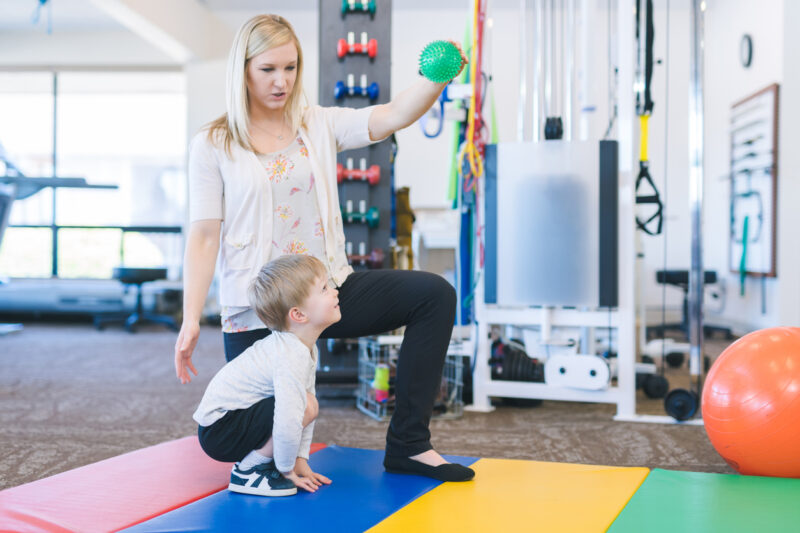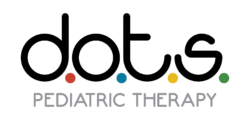Physical Therapy
What is Pediatric PT?
Pediatric physical therapy addresses movement, mobility, strength, and function in children. It aims to promote optimal physical development and independence in daily activities.
Pediatric physical therapists work with infants, children, and adolescents who may have conditions affecting movement, such as developmental delays, neurological disorders, orthopedic injuries, genetic disorders, or congenital disabilities. Through personalized interventions, therapeutic exercises, play-based activities, and functional training, pediatric physical therapists help children improve their gross motor skills, balance, coordination, posture, and overall physical abilities.
The goal is to enhance a child’s ability to participate in activities at home, school, and in the community, fostering independence, confidence, and overall well-being.





How do I know if my child would benefit from PT?
Parents may consider seeking pediatric physical therapy for their child if they notice any of the following signs or concerns:
Delayed Motor Milestones: Failure to achieve age-appropriate developmental milestones such as rolling over, crawling, sitting up, standing, or walking within typical timelines.
Muscle Weakness or Imbalance: Difficulty with activities requiring strength, coordination, or balance, such as climbing stairs, running, jumping, or playing sports.
Poor Posture: Persistent slouching, awkward gait, or difficulties maintaining upright posture during sitting or standing activities.
Pain or Discomfort: Complaints of pain, discomfort, or limited range of motion in muscles or joints, particularly after physical activity or movement.
Orthopedic Conditions: Diagnosed orthopedic conditions such as scoliosis, clubfoot, congenital limb abnormalities, or sports-related injuries affecting movement or mobility.
Neurological Conditions: Diagnosed neurological conditions such as cerebral palsy, spina bifida, or muscular dystrophy that impact motor function, coordination, or muscle tone.
Balance or Coordination Issues: Difficulty maintaining balance, frequent falls, clumsiness, or challenges with coordinating movements.
Torticollis: Persistent tilting or rotation of the head due to tightness or weakness in neck muscles, which can lead to limited range of motion and difficulty turning the head.
Difficulty Participating in Activities: Struggles with participating in age-appropriate activities, sports, or physical education classes due to physical limitations or challenges.
If parents observe these signs or have concerns about their child’s motor development or physical abilities, consulting with a pediatrician or physical therapist can provide valuable insights and guidance on whether pediatric physical therapy may be beneficial for their child’s needs. Early intervention is key for addressing motor delays or difficulties effectively and promoting optimal physical development and function.
Our Approach
Maximize Your Child’s Potential With The Benefits of Professional Therapy!
Please call our office or click on the "Get Started" button. We will then review your insurance benefits and/or discuss private pay options.
Consistent therapy attendance improves the effectiveness of our treatment plans. We will work with you to find a reserved weekly appointment time.
Typically a one-hour appointment that consists of standardized testing and clinical observation to assess developmental milestones.
After the evaluation, your therapist will communicate results, set goals, and create a treatment plan. Sessions are typically scheduled one to two times per week.
Testimonial
What they say about us
Our positive reviews stand as a testament to the unwavering dedication and transformative impact we’ve had on the lives of countless families, illuminating our commitment to excellence and compassionate care.



Why Choose Us
Building a brighter future for children, one step at a time.
When seeking the best care for your child’s therapy needs, DOTS Pediatric Therapy stands out as a trusted beacon of expertise, compassion, and comprehensive support.
We have a team of highly qualified and experienced therapists who specialize in pediatric care. With years of training and hands-on experience, they are adept at effectively addressing a wide range of developmental challenges.
We offer a comprehensive range of pediatric therapy services, including occupational, physical, and speech therapy. This ensures that children receive holistic care tailored to their individual needs, all under one roof!
We prioritize personalized care, recognizing that each child is unique and may require a customized treatment plan. By taking the time to understand the specific needs and goals of each child, our therapists can deliver targeted interventions that maximize progress and outcomes.






